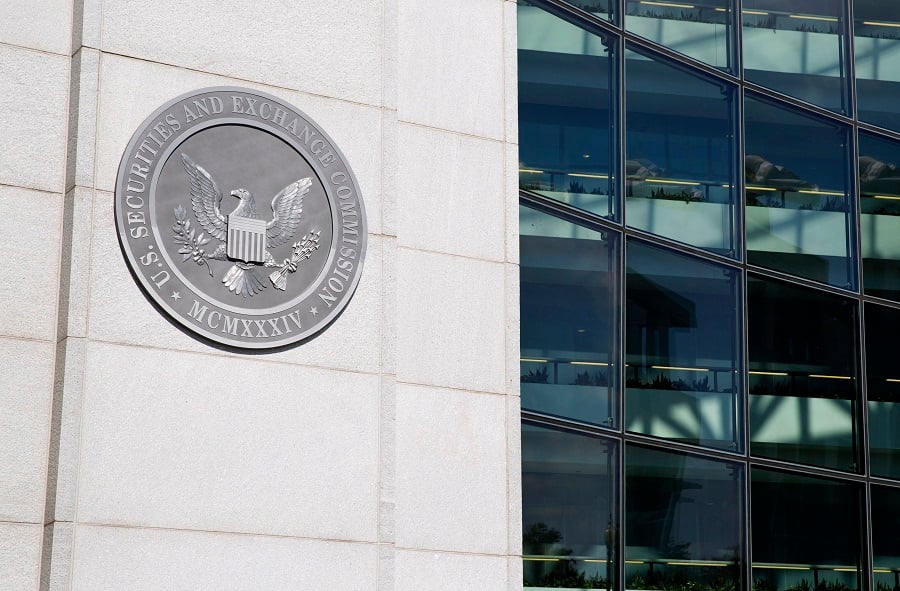

The SEC made it easier this week for mutual funds to borrow money to meet a rush of redemptions sparked by the COVID-19 pandemic – something the regulator also did during the 2008 financial crisis.
The relief was one of several temporary measures issued Monday and Wednesday aimed at making life easier for mutual funds, investment advisers and publicly traded companies. Among the other measures were deadline extensions for public companies to file certain disclosures and allowing fund boards extra time to hold their required meetings.
By lifting restrictions, the Securities and Exchange Commission is helping fund providers and investment managers that have had to contend with liquidity constraints, or might have to deal with them soon. But the measures might have more to do with assuring investors, said Todd Cipperman, founding principal of Cipperman Compliance Services.
“Markets really aren’t seized up. Funds, as far as I can tell, aren’t having trouble selling securities,” Cipperman said. The SEC is “concerned about a liquidity crisis or crunch and a raft of redemptions … or maybe it’s as simple as [a way of] assuring investors that their money is not locked up.”
One fund manager, Fidelity Investments, noted that its “mutual funds and other investment vehicles continue to operate without interruption for our clients,” a company spokesperson said in an email.
Another fund firm, Vanguard, said that given the importance of people's health and safety, “Vanguard supports the SEC taking action to extend regulatory relief and reporting deadlines.”
Under the Investment Company Act of 1940, mutual funds are required to meet shareholders’ redemption requests in seven days or less. Those requests are generally settled much more quickly, but a high volume of redemptions that required some funds to sell less-liquid holdings could potentially cause delays.
“[The SEC] learned some lessons from ’08, and they don’t want to exacerbate the market [dive] with a run on funds,” Cipperman said. And by calming investors’ nerves about fund liquidity, the regulator could help to avoid that, he noted.
But the SEC could also be anticipating requests from fund companies. The agency had implemented a similar measure in 2008, after numerous fund providers had individually applied for exemptive relief around liquidity, Cipperman said.
“Today’s temporary action will provide an additional tool that funds can use to manage their portfolios for the benefit of their investors in the current market environment,” SEC Chairman Jay Clayton said in a statement. “This action provides funds with additional flexibility to navigate volatile markets while meeting their obligations to investors.”
The SEC’s order allows registered open-end funds and insurance company separate accounts to borrow from affiliates. That can mean tapping into money held in the investment adviser’s corporate account, borrowing assets from a different fund sponsored by the same firm or getting money from a revolving line of credit, Cipperman said. Part of the SEC’s order permits interfund lending for mutual funds that had not received exemptive relief for that practice in the past.
The relief is in effect through June 30, though the SEC could extend it.
But just because mutual funds can borrow money to meet redemption requests doesn’t mean they should, at least not proactively, Cipperman said. Fund boards are required to approve such measures and notify the SEC. And the funds themselves are affected, because they must pay interest on the borrowed money, he noted.
In the separate order issued Wednesday, the SEC gave publicly traded companies a 45-day extension to file disclosures, such as proxy statements, that had been due between March 1 and July 1.
That order also includes guidance on timely reporting of financial impacts caused by COVID-19, “while recognizing that it may be difficult to assess or predict with precision the broad effects.”
The SEC had relaxed Form ADV filing requirements on March 13 for investment advisers, though it required them to provide justification to the SEC for any requested delays. The order issued Wednesday removed that requirement, though it requires any investment advisers that are relying on the order to notify the SEC about delays in filing.

Former Northwestern Mutual advisors join firm for independence.

Executives from LPL Financial, Cresset Partners hired for key roles.

Geopolitical tension has been managed well by the markets.

December cut is still a possiblity.

Canada, China among nations to react to president-elect's comments.
Streamline your outreach with Aidentified's AI-driven solutions
This season’s market volatility: Positioning for rate relief, income growth and the AI rebound
